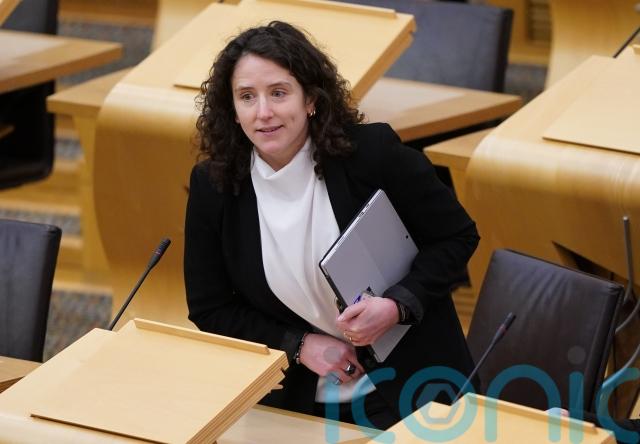
New land reform legislation passed by Holyrood is a “watershed moment”, Scotland’s Rural Affairs Secretary has insisted.
Mairi Gougeon spoke as MSPs backed a series of measures in the Land Reform (Scotland) Bill, which was passed by 85 to 28, with nine abstentions.
However, the body that represents Scotland’s countryside estates branded it a “junk law”, adding that some of the proposals in the legislation may never come into force.
Sarah-Jane Laing, the chief executive of Scottish Land and Estates, also said there was the prospect that the newly passed Bill could be challenged in the courts.
Ms Gougeon, the Rural Affairs, Land Reform and Islands Secretary, insisted the new law would bring in “substantive changes”.

Holyrood ministers introduced the Land Reform (Scotland) Bill in part to help reduce to concentration of rural land ownership, where small numbers of people own large areas of Scotland’s countryside.
In addition, the Bill seeks to increase opportunities for community buyouts of land, and also proposes that when large estates are put on the market these could be broken up into smaller areas – in a process known as lotting – if certain conditions are met.
“Responsible land owners will have nothing to fear” from the changes, Ms Gougeon told MSPs.
She insisted the passage of the legislation “marks a watershed moment”, adding: “The measures in this Bill show that change is possible, that we can build a better future, allowing communities to breathe new life and new opportunity in rural Scotland.
“At its heart, land reform is about giving voice to the voiceless, it is about empowering communities and individuals.
“It is this quest for dignity and fairness that is at the heart of our Land Reform Bill.”
Tories claimed the Bill was based on a “consensus that community land ownership is inherently better than private ownership”.
Conservative MSP Tim Eagle said: “Private ownership brings enormous value to rural Scotland; it brings investment, jobs and local spending.
“It supports the people who work our land and manage our forests and power our economy.”
But he said there was now a “real danger that the Bill, however well-intentioned, begins to resemble the kind of state control we have seen elsewhere in Europe”.
Ms Laing said: “Perhaps uniquely, this legislation has succeeded in uniting landowners, land reform campaigners, lawyers, property agents and accountants – all of whom recognise that, whatever your stance on land reform, this is junk law.”
The Scottish Land and Estates chief executive added: “The reality is that many of the Bill’s provisions are so badly drafted that it will take years of additional work by government and others before they can be implemented in practice – and some may never come into effect at all.
“No-one emerges as a winner from this – not government, not landowners, not rural businesses, not communities, and certainly not the taxpayer who will bear much of the cost of the added bureaucracy.
“The only likely beneficiaries will be lawyers as property transactions become more complex and the prospect of this Act being the subject of a challenge before the courts.”
Subscribe or register today to discover more from DonegalLive.ie
Buy the e-paper of the Donegal Democrat, Donegal People's Press, Donegal Post and Inish Times here for instant access to Donegal's premier news titles.
Keep up with the latest news from Donegal with our daily newsletter featuring the most important stories of the day delivered to your inbox every evening at 5pm.